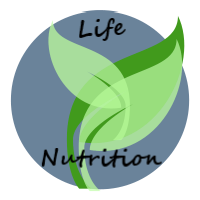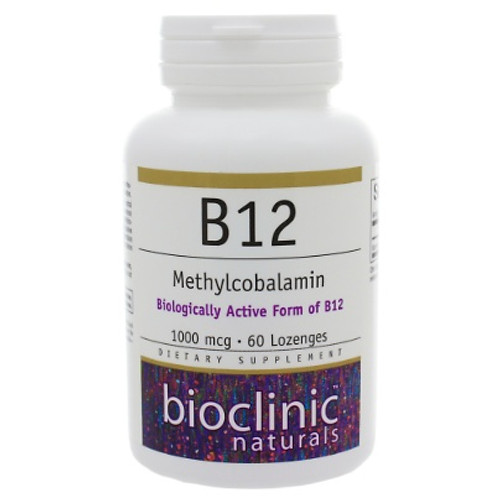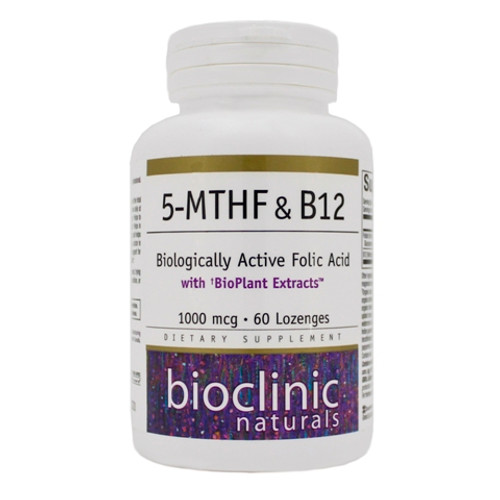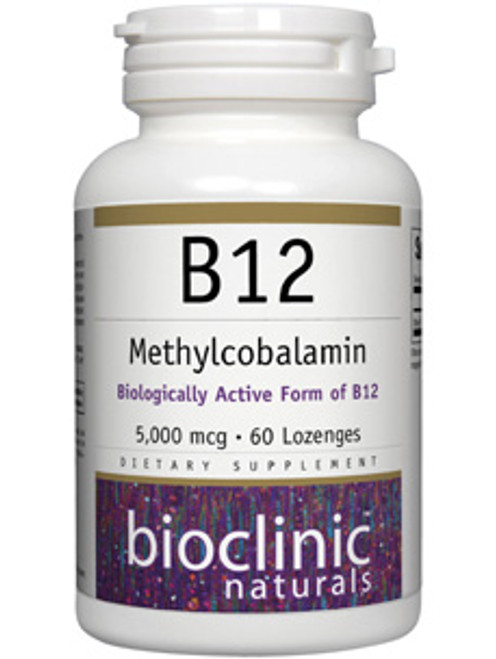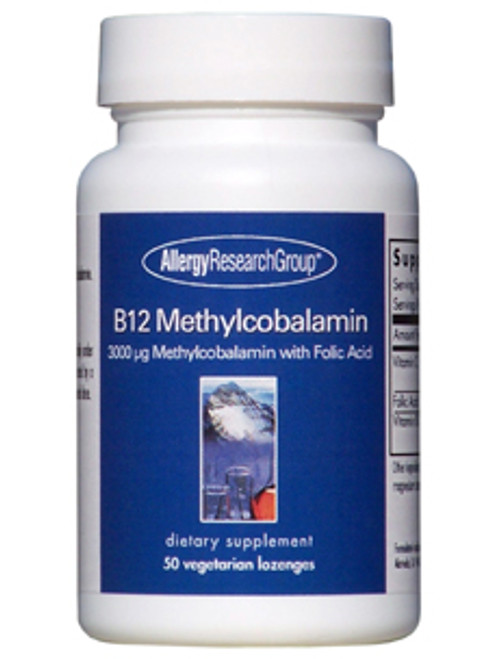Vitamin B12 is the cofactor in enzymatic reactions with diverse physiological functions. It is required for the conversion of methylmalonyl CoA to succinyl CoA, as well as the conversion of homocysteine to methionine by methionine synthase, which is then converted into S-adenosylmethionine. A B12 deficiency causes impairments in both of these pathways, disrupting neurological function, including poor formation of myelin nerve sheaths, production of toxic levels of homocysteine, and inefficient energy production in all cells.
Because of its relationship to myelin production and neurological function, high dose B12 has been used in a variety of neurodegenerative diseases, including Parkinson’s disease, amyotrophic lateral sclerosis, and multiple sclerosis.
Some individuals, especially those with malabsorption or low dietary intake, are at higher risk for a B12 deficiency. Individuals with impaired absorption of B12 rely on passive absorption, which is typically 1% of the ingested amount. Thus high doses are required for those with greater B12 needs, such as elderly individuals and those with neurodegenerative disorders.
Benefits
•Superior to the more common form, cyanocobalamin as cyanocobalamin does not convert to enough methylcobalamin to correct some forms of anemia, neurological defects, and aging
•Methylcobalamin is the active form of vitamin B12 for maximum benefit
•Lozenges allow for fast acting delivery system directly into blood stream
•Lowers homocystein levels for protective cardiovascular benefits
